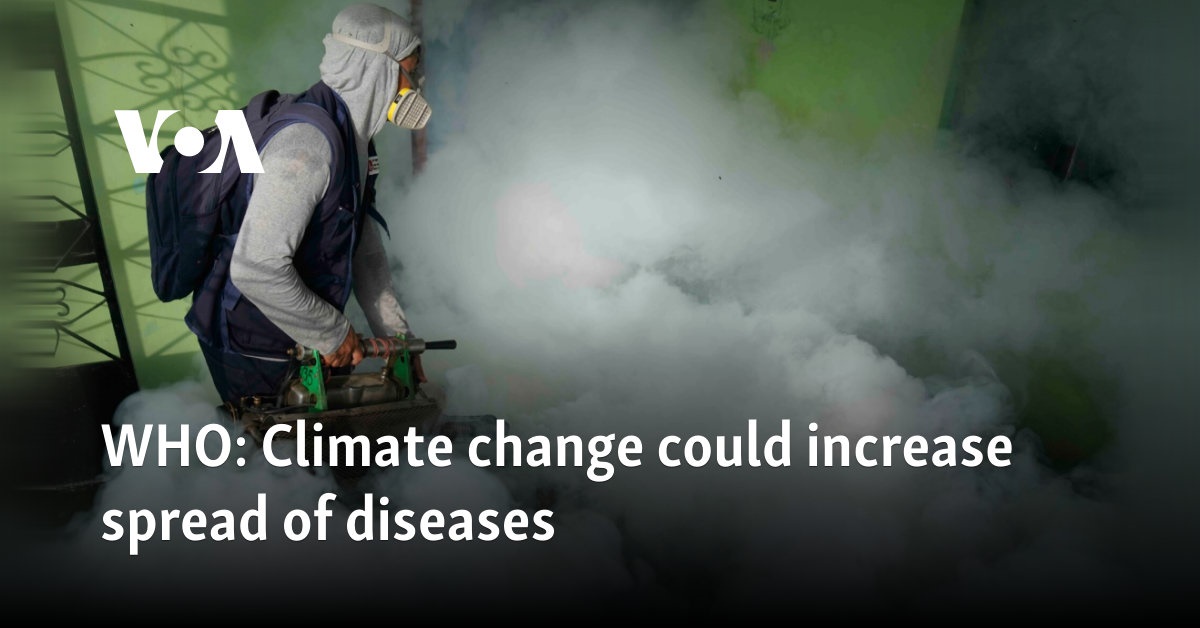
This article was originally published on VOA News - Science. You can read the original article HERE

The World Health Organization says “urgent action” is needed to research how climate change is affecting malaria and neglected tropical diseases (NTDs).
Rising temperatures are changing how vector-borne diseases – diseases spread by the bite of infected insects – are spread, the WHO said in a press release last week.
Climate change expands the geographic range of vectors like mosquitos, increasing the likelihood that diseases like malaria will spread to new, unprepared areas, it added.
The health organization said a review published by its task team on climate change, NTDs and malaria highlights that there is not enough data to predict the effects of climate change on malaria and NTDs.
The review analyzed more than 42,000 articles. Researchers found that some diseases like malaria were well-studied, but others have not been sufficiently examined.
“This important and timely review reveals alarming trends and is a call to urgent action,” said the leader of the study, Dr. Ibrahima Socé Fall, director of the WHO’s global NTD program. “If we are to protect and build upon the hard-won victories of the past two decades, the time to mobilize is now.”
The study says previous research has focused on countries with low rates of diseases and high access to quality health care, failing to account for regions with the highest burden of disease and limited resources.
Dr. Maria Neira, director of the WHO’s public health, environment and social determinants of health department, said the lack of research will not stop the WHO from responding to climate-sensitive diseases in higher-risk communities.
“The prioritization will be of the most vulnerable countries,” Neira told VOA. “The countries now need the financial support to start to implement climate resilience facilities.”
The WHO is supporting high-risk countries to help their health systems prepare to cope with climate-sensitive diseases, she added.
“Women, children, older people, indigenous groups and ethnic minorities, migrants and the very poor have contributed least but are likely to experience most of the effects of the climate crisis, notably including through any increase in the burden of malaria or NTDs,” according to the review.
This article was originally published by VOA News - Science. We only curate news from sources that align with the core values of our intended conservative audience. If you like the news you read here we encourage you to utilize the original sources for even more great news and opinions you can trust!









Comments